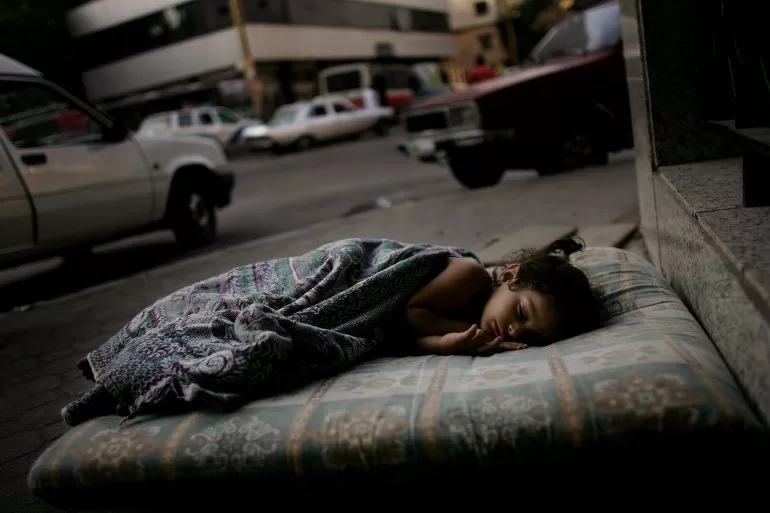Mazen used to run a gift and perfume store called Mazen Kado (French for gift) in Mreijeh. He lived what he described as a calm life with his beloved cat Cici, the star of his TikTok account.
When the bombing started, he sent his family to stay elsewhere while he and Cici remained. On one of the first days after the bombing began, he stepped out to buy a few things and while he was out, an air strike hit his building.
“Cici was in the building,” he told Al Jazeera. “I tried to cover my face with all the fire and smoke but I wasn’t able to go inside and bring her out. The building was 10 storeys high and it collapsed.”
In a video that went viral on his TikTok account, Mazen films the rubble of his building and sobs audibly, screaming out for Cici. The comments are mostly crying faces or heartbreak emojis.
“Everything’s gone,” he told Al Jazeera. “My house is gone … no problem, I’ll get another house. And as the days have passed, everything I owned is now gone. No problem.
“The thing that matters to me is if Cici is dead. God willing, she didn’t die.”
Mazen hasn’t given up on finding Cici. On his TikTok account, he still posts videos of the rubble that was his home and calls out desperately for his missing cat, no matter how unlikely it is that Cici survived.
“I’m out looking every day,” he said.
“I stay in Dahiyeh because I take care of the cats so they don’t die,” he said.
“I sleep in the street. One night I’ll sleep on the street, one night on a verandah, every night is different.
“I still live a calm life. I don’t care about any party or sect, I’m a Lebanese man and I love life and cats and animals.”
@cadeauxmazen24
Dahiyeh’s once-bustling streets are now largely abandoned. Some people come back during the day, in the moments they feel air strikes are less likely, to grab clothes or check on their homes.
“The situation is a disaster,” Younes said. “Dahiyeh is gone.”
In 2006, war came to Dahiyeh once again. Hezbollah and Israel fought a 34-day war in which more than 1,220 people were killed, the vast majority of them people in Lebanon. Israel destroyed about 245 buildings and developed a tactic of disproportionate damage that came to be named The Dahiyeh Doctrine.
Despite those prior wars, Younes’s family continued to grow in Dahiyeh. But now, some family members don’t see a future there.
She said her maternal uncle’s family has decided they won’t return once the war is over.
“They’re thinking that once this all ends, they’ll sell everything they own in Dahiyeh and buy something outside the area. Nobody wants that Dahiyeh any more.”
Harb, the AUB urbanist, also grew up in Dahiyeh but left about 30 years ago. Her father, however, went to Burj al-Barajneh for bread, meat, cheese and labneh until just a few weeks ago.
“He’s not doing it because there’s no bread or cheese elsewhere. It’s because he wants to go through the streets of his childhood and needs to do this pilgrimage through the small alleyways to feel a connection to this place and see familiar faces around,” she said.
“This is one example of something close to me that has been completely obliterated.”
As for al-Dirani, she often dreamed of a life outside of Dahiyeh.
“I wanted to go away, but not like that,” she said. “I feel like all of my dreams are collapsing.”
“I’m still processing … I’m kind of traumatised,” she said, her voice solemn, soft and introspective. “I don’t want to think about what happened because I feel like I’m in a nightmare and I don’t want to wake up because it’s hard to think what I’m going to do when I do.”
The good memories of home still exist in the corners of her mind. But at the moment they’re superseded by the horror of the last few weeks and the fear, or resignation, of what may await so many people living through the war in Lebanon.
“I can’t even describe it but I’m trying to tell you what we experienced,” she said, reaching deep for the words.
“We’re just sitting and waiting for our day to come. It’s bad for me to say this but we wait for the time we’re going to be killed like our relatives and our loved ones.”
